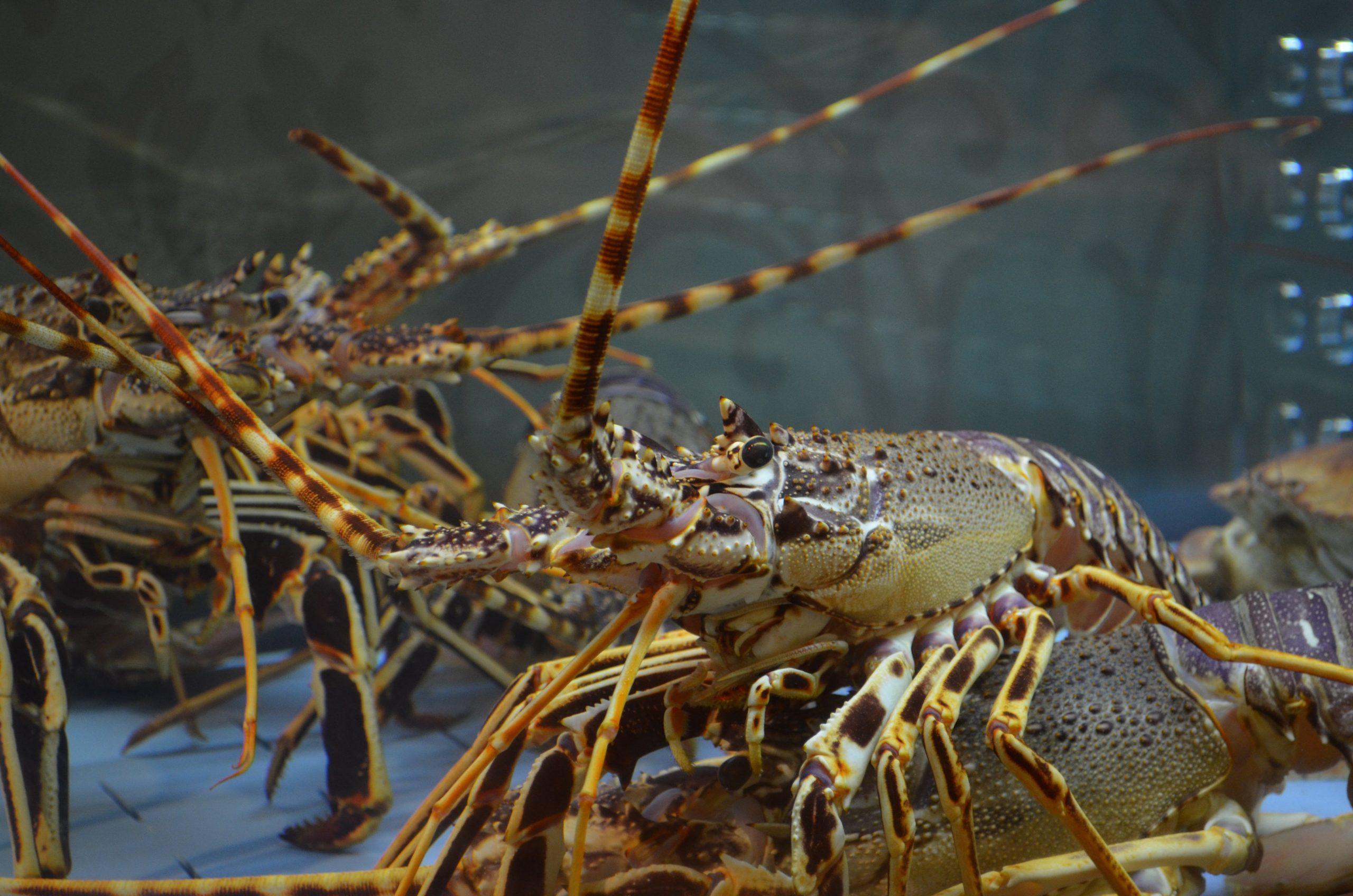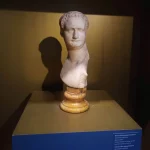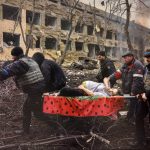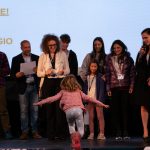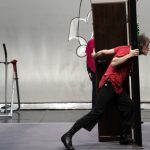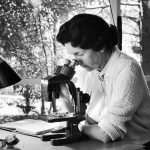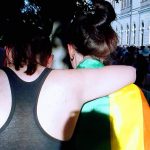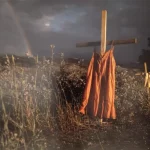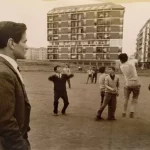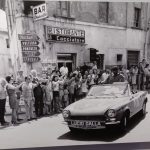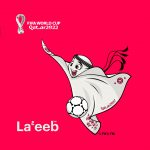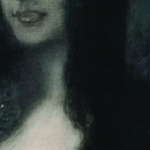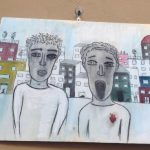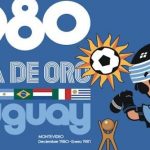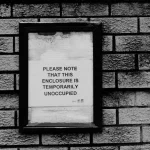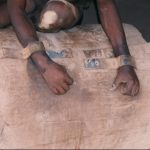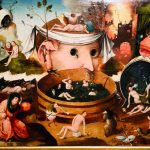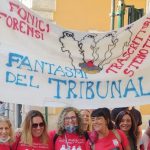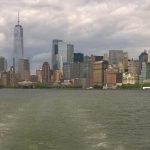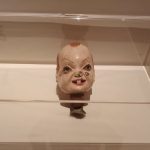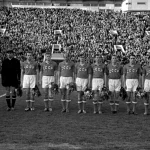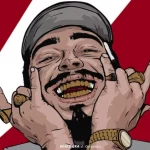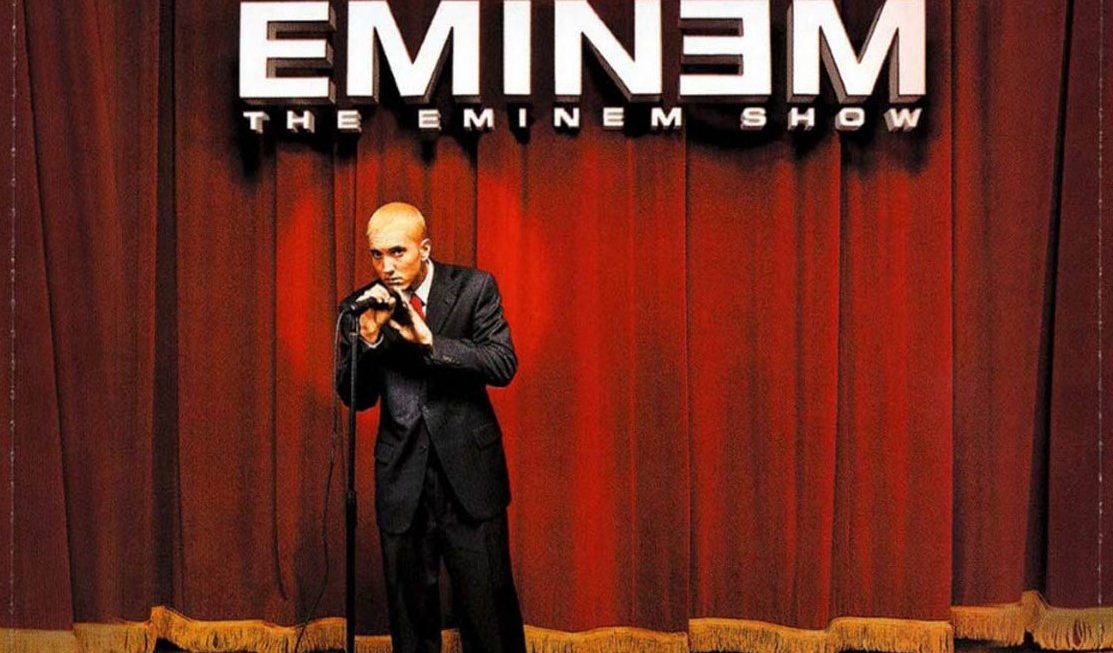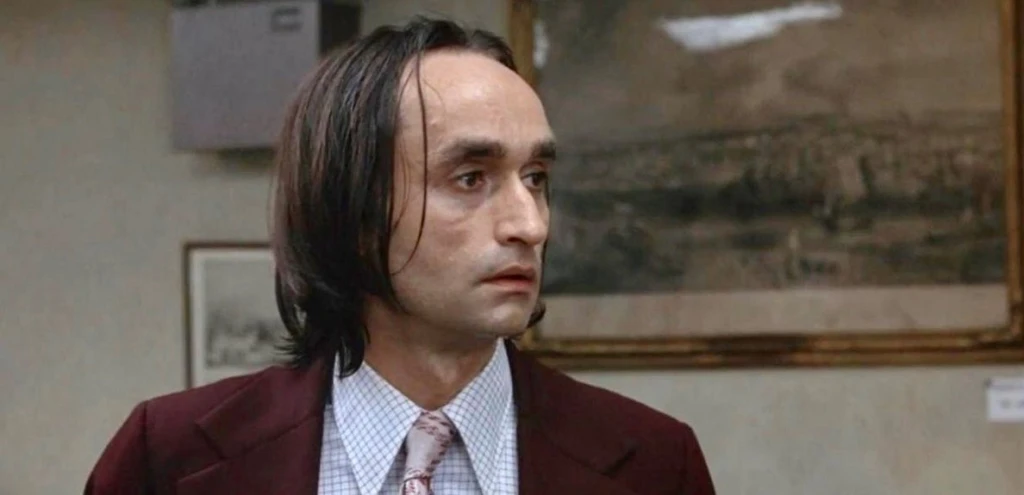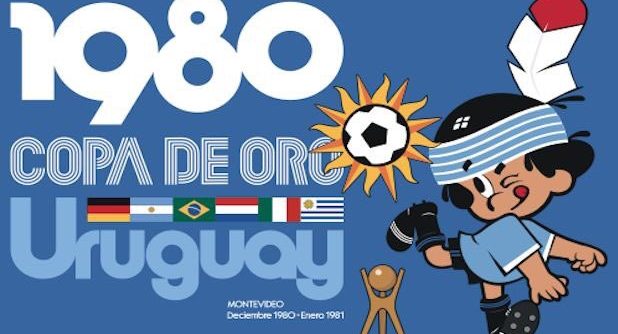The documentary begins with music and text: “since the dawn of time among the world’s crossroads, men leave their land. Tears, dangers, fatigue and violence look for a way through, while fears, suspect and intolerance build barriers. But when, among the world’s crossroads or ocean’s routs, women are moving, is different. Because they are women. Because since the dawn of time, among the world’s crossroads, women get violence, a physical and moral devastation capable to generate creatures which, later, hardly will receive love”.
Mediterranean Horizons, documentary of Maria Grazia Lo Cicero and Pina Mandolfo, tells us that disembarkations are since long synonymous of human trafficking. Trade, slavery, prostitution. Far from being over, slavery just found new ways. First white men went to pick up blacks. Now blacks come by themselves, how could it be any easier? They escape from wars, misery, violence, dearth. “After the few we see on tv, thinking about Europe as places with more rights, living such experiences is a shock”, says Isokè Aikpitanyi, Nigerian writer and activist. “Who comes from south of the Sahara, in Northern Africa can be discriminated for his skin color”, tells us a Sudanese woman, in Libya we risk to be arrested, men are forced to serve in the military, women are raped”, nobody can avoid violence and torture in jail, men and women tell about sexual abuses, even in front of the police. “Without mercy. They look like animals”. But animals don’t do things like those.
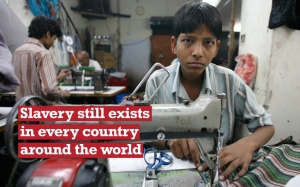
It’s inevitabile, “they choose death over death”, comments in an interview Enza Malatino, sicilian psychiatrist and mediator, essential for the realization of the documentary. To understand how much is absurd to blame or go against people who naturally, for primary instinct, run from sufferings dreaming about a righteous land which seems not to exist. “What’s our falt?”, asks a woman, “where are Italy, France, Spain? Why they don’t think about” fathers and husbands that beat you up, men who force you to be a prostitute, hunger, dictatorships, fundamentalism, poverty, obscurantism, sexual and psychological violence… trying to cross a desert and a sea it’s nothing compared to that.
What they don’t know is that if they’re going to survive, in Italy they’ll be received in structures in which they’ll be, best scenery, parked for months without the chance to do anything. In the worst scenery mistreated, raped, sell to sex market and irregular works. How come, just for some people, destiny seems never to change? “I remember a woman who couldn’t even look her baby in the face, then I realized that probably was the result of violence”, Malatino continues to tell. And that’s the result of a problem which born from real afar. The prevail of the strong on the weak, the obvious and urgent need to flee from what hurts and the current intention of the politics to do nothing. Europe keeps talking without any real action, that’s what former Italian minister Cecile Kyenge keeps reaffirming, “when you arrive in the isle of Lampedusa you enter in the Schengen area, which means consciousness, equal distribution of responsibilities and solidarity, basic topic for Europe”.
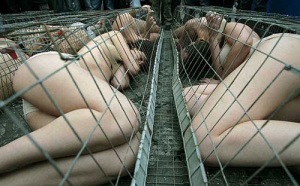
“You’ve got to leave, there’s no other solution”, says Rashida, escaped from Morocco and violent father and husband. She spend three thousand Euros hoping to be shipped in Greece, but she ended in Turkey, where she is enslaved for eight months. Once she is left free, she travels in the snow through the mountains directed to the coast, eating and drinking from the ground, leaving dead bodies on her footsteps. She finally get on board, but in France is no better… “we aren’t happy to come here, you have to change questions, we are forced. Not happy. Think about those who stay there, with Governments killing their own people. Nobody would be happy to see his sister raped in front of your eyes or night time bombings. War makes everything dark. You can’t imagine, but we burn inside every day. In that sea there’s Africa screaming”. Isokè is the only woman in the whole documentary who is recognizable, “when I tried to run away from prostitution I’ve been massacred with kicks and fists. It usually happens, but sometimes someone dies. I’ve been three days in a coma, when I woke up the only thing I wanted was going, even more. So I did it, without looking back”. Today she helps girls who arrive in Italy in the same, struggling, conditions.
First thing first, she tries to save them from Centers of Identification and Expulsion (Cie in Italian) and Centers of Reception (Cara). It looks like a paradox for the second option, but “reception” wasn’t only an inappropriate term, but also an easy spot to find human commodity: you understand it from what traffickers say, “for example one says ‘ours arrived, and be calm, they’re in Cara and it will be easy to take them’. No girl really knows what expect her outside the center. They put them in a car and that’s it. But danger is not only out there, someone talks of violence even inside the center, ‘men in uniform’. Those girls can afford only on friends’ help, of Italian families and, I’ve got to admit, ex customers”.

In this chain the “final users”, as they have been called in politicians language, are the best, or at least they are not bad: far from the stereotype of being filthy, obscene exploiters, these men can be kind of empathetic. Isokè herself is married with an Italian ex customer. “I’m tired to see that nothing right is decided, there’s no political interest in facing seriously this problem. Even girls recognized as victims of trafficking don’t get any adequate support. They’re put with addicts, what’s the point?”. It would be a good start the closure of centers grown in emergency, not efficient and open to criminality, or turn them into Services for the Protection of Refugees (Sprar in Italian), active with this purpose since 2001. All the associations request that. Why is not done (but what happened with criminal organizations in these months in Rome explains a lot)?
Women and kids shouldn’t be in these isolated structures, says Gemma Marino of Astra Association, “it’s a long time that we got evidence that women are also exploited”, Isokè would have a solution which got the very same principle of what could be done with feminine genital mutilations. Go and rescue, that’s the magic word, these girls from the bond with violence, that is other older women who probably lived the same when they were younger. In Nigeria are called maman. They carry on certain traditions and help Nigerian mafia to manage the girls. “But we shuold rescue at least 10 thousand women to break the cycle between them and the traffickers”. Rescue, not hit.
